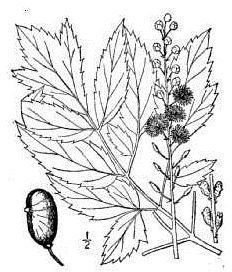How Using Black Cohosh for Hot Flashes Can Help You Find Relief for Menopausal Symptoms
History and Use
Black cohosh is a native American wildflower, long used in folk medicine for a variety of ailments from menstrual irregularities to fever to snakebites. The plant is also known as bugbane, which reveals another one of its traditional uses. Its most important use was as a female tonic. It has gained attention in recent years as a possible antidote for the unpleasant symptoms of menopause, including hot flashes.
The primary active constituents in this herb are triterpenes glycosides, a chemical compound containing sugar. It is most concentrated in the root of the plant. You can find black cohosh sold as part of herbal mixes, teas, capsules or in a tincture form. Black cohosh was the tenth most popular herbal supplement sold in the United States in 2009 with sales topping $8 million, according to the American Botanical Council.
Supporting Evidence
About three-quarters of menopausal woman experience hot flashes, though younger women may also experience them near menstruation. The symptom is characterized by a sudden onset of sweating and rapid heartbeat, beginning in the upper body. Severity varies among women.
Many possible treatments have been suggested including yoga, exercise and relaxation exercises. The use of black cohosh for hot flashes has yielded promising evidence and it may offer substantial relief for some women. A 2005 study by Hildesheim General Hospital in Germany found that women taking 40 mg of black cohosh daily for 12 weeks experienced an improvement in hot flash symptoms.
A 2010 study by the University of Naples in Italy confirmed these findings, concluding that the effects were greatest for women in early stages of menopause versus later stages. The evidence is encouraging in light of the risks associated with hormone replacement therapy for treating menopausal symptoms including an increased risk of heart attacks, blood clots and breast cancer.
Cautions When Using Black Cohosh
Taking black cohosh for hot flashes is not without some risks. Some women may experience weight gain or stomach upset. While generally safe, a risk exists for drug interactions with some high blood pressure medications, cancer drugs and other medications which also impact the liver including aspirin, warfarin and birth control pills.
You should also take care that you are taking black cohosh and not blue cohosh. Though similarly named, the two plants are unrelated genetically. In addition, blue cohosh contains ingredients which can induce labor and increase blood pressure.
Black cohosh may offer an alternative for relief for the discomfort of this common menopausal symptom as shown by some medical evidence. If you are on prescribed medication, consult your doctor before taking it to see if it is right for you.
Photo by USDA-NRCS PLANTS Database / Britton, N.L., and A. Brown. 1913. An illustrated flora of the northern United States, Canada and the British Possessions. 3 vols. Charles Scribner’s Sons, New York. Vol. 2: 91.
References
American Botanical Council: Herbal Supplement Sales Rise in All Channels in 2009 cms.herbalgram.org
F. Borrelli and E. Ernst. Alternative and complementary therapies for the menopause. Maturitas, August 2010; 66(4):333-343.
R. Osmers, et al. Efficacy and safety of isopropanolic black cohosh extract for climacteric symptoms. Obstetrics and Gynecology, May 2005; 105(5 Pt 1):1074-1083.
U.S. Food and Drug Administration: Menopause and Hormones fda.gov
